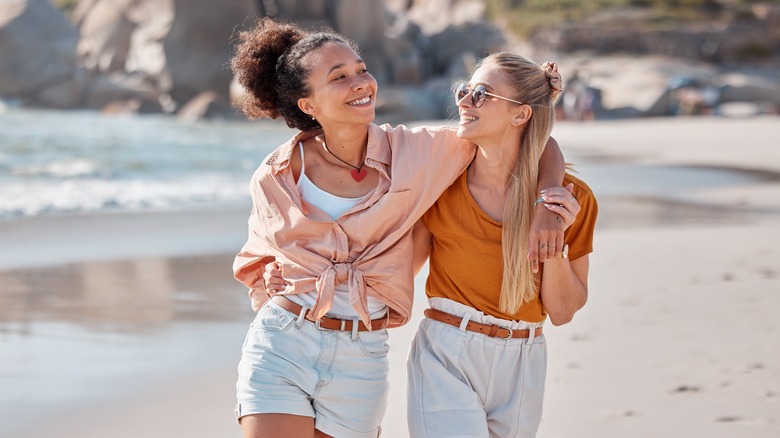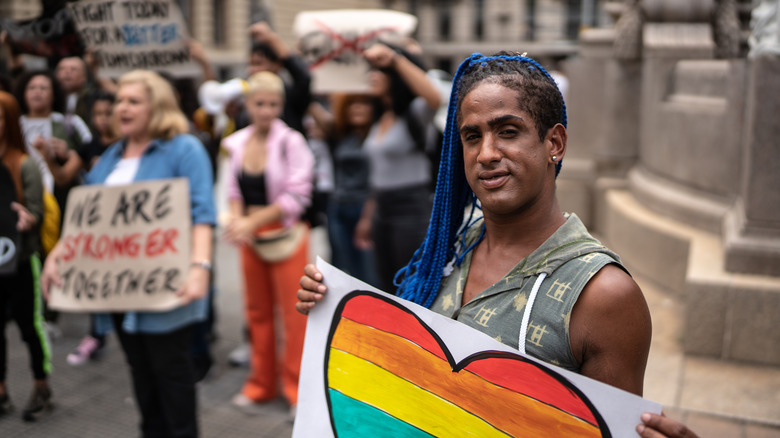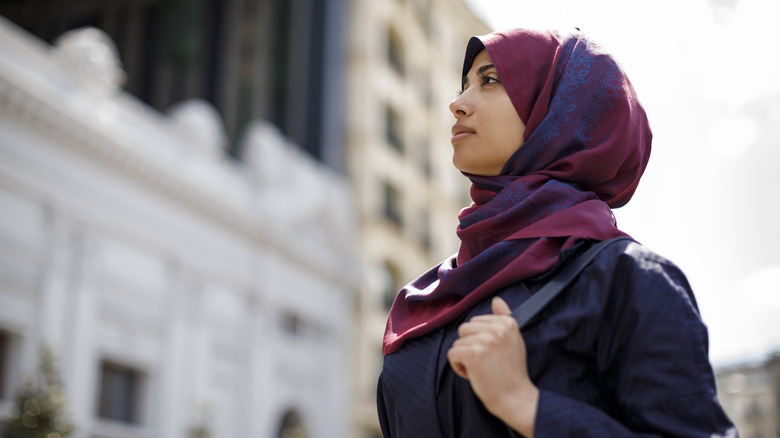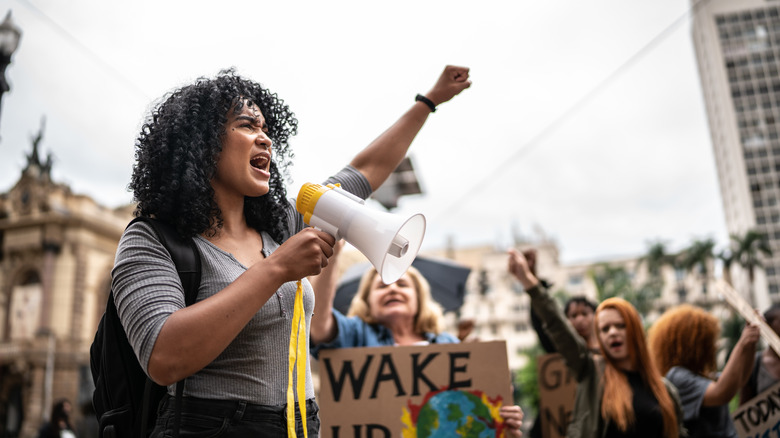Important Safety Considerations For Anyone Looking To Travel To This Popular Indian Ocean Island
With ample free attractions and year-round warm temperatures, Zanzibar is a budget-friendly destination and, theoretically, a dream destination for many travelers. A quick search of the web may have you convinced that Zanzibar is safe for all tourists. However, for members of the LGBTQ+ community, female solo travelers, and people of color (POC), some serious safety concerns arise.
Before planning a trip to Zanzibar, it's crucial to understand the legal context of being a tourist on the island. Zanzibar, a partially self-governing state in Tanzania, is like many other East African countries where laws actively criminalize same-sex relations. The archipelago has a predominantly Islamic-practicing population with specific cultural and social practices dictating dress codes, behaviors, and social hierarchies. But the government of Tanzania poses a particularly extreme safety risk for LGBTQ+ people.
According to the Human Rights Campaign, the religion's societal attitudes towards LGBTQ+ individuals may differ across communities. While the Islamic view of homosexuality is as vague and interpreted as freely as the Christian view on the subject, the government of Zanzibar takes a clear stance with laws that criminalize the LBGTQ+ community. To visit Zanzibar, one must be aware of this context and take necessary precautions for their safety, no matter their sexual orientation or gender identity.
Government-enforced laws criminalizing LGBTQ+ people
Cultural awareness is vital in ensuring a safe trip to Zanzibar. The archipelago is known for its conservative values, and though it is important to respect the culture and religion of any destination as a tourist, understanding national and local policies that directly affect your safety is vital. Tanzania (including Zanzibar) has a history of homophobia, going as far as restricting health education and services to the LGBTQ+ community and calling for the arrest of community members in 2018.
The government of Tanzania has a stringent stance against homosexuality, with laws that penalize same-sex acts with imprisonment. This includes any physical intimacy or public display of affection between individuals of the same gender. Even with the election of Tanzania's first female president, the strict, outdated laws remain in place — with some members of Parliament even trying to expand them. Zanzibar poses a severe travel risk for queer people, as there are no protections against LGBTQ+ discrimination.
If you're a same-sex couple insistent on traveling to Zanzibar, it's important to be aware of your surroundings and respect the local culture. This could mean refraining from engaging in public affection, such as hand-holding or kissing. Tourists can be arrested on suspicion of homosexuality and subjected to forced examinations of the anal and genital area. Prison sentences can range from seven years for females and 25 years-to-life for males. In 2023, some members of Parliament called for the death penalty to be added as a sentencing option for sexual conduct violations.
Systemic discrimination extends to other groups
Though there are many testimonials from travelers who say Zanzibar is generally safe, some female solo travelers and POC aren't granted the same luxuries. One woman told the East African of her experience of discrimination as a female tourist and woman of color. Being ignored, refused service, and verbal harassment were all experiences she faced as a local tourist on the island.
Staying safe as a solo traveler in Zanzibar means being aware of your surroundings and respecting local customs, but it also means doing your research and being aware of potentially unavoidable issues. Reports of racial discrimination at resorts and restaurants are not uncommon, with many claiming they were denied service or treated poorly because of their skin color — some people have even been denied access to hotels because of racial bias.
According to a travel advisory issued in 2023 by the U.S. State Department, travelers (particularly LGBTQ+ tourists) should exercise increased caution when traveling to areas of Tanzania due to the threat of crime and terrorism. One transgender woman living in Tanzania told Amnesty International that "We [transgender people] are never called by our names. I am never called Melody, I am called shoga, ssenge, malaya (homo, pervert, whore) and other insults."
Local codes and customs violations
If you're not at risk of being actively persecuted for your sexual identity, orientation, or otherwise in Zanzibar, you're still not free of potential issues. Strict laws and customs extend to every tourist visiting the area. Tourists are expected to abide by etiquettes that dictate public displays of affection, public photography, foul language, and more. Photography of mosques or religious sites isn't allowed, and it is customary to ask for permission before photographing in specific locations or taking photographs of locals. Public displays of affection with your partner (no matter your identity or orientation) are also frowned upon.
Local customs and dress codes can be confusing, especially without researching the topic beforehand. In line with Islamic traditions, women should dress modestly. This includes avoiding revealing or tight-fitting clothing. Long skirts or pants and tops with sleeves are generally appropriate. Tourists are urged to cover cleavage, shoulders, and legs from the knees to ankles.
Anything else is considered indecent dressing, and the local government can fine tourists for clothing violations starting at $700. Dress codes also apply in resorts and hotels, so checking with the accommodation beforehand is best. According to Ocean Paradise Resort & Spa in Zanzibar, women should wear pants or long skirts to cover their knees, avoid sheer fabrics, and use swimsuit coverups when not at the beach.



